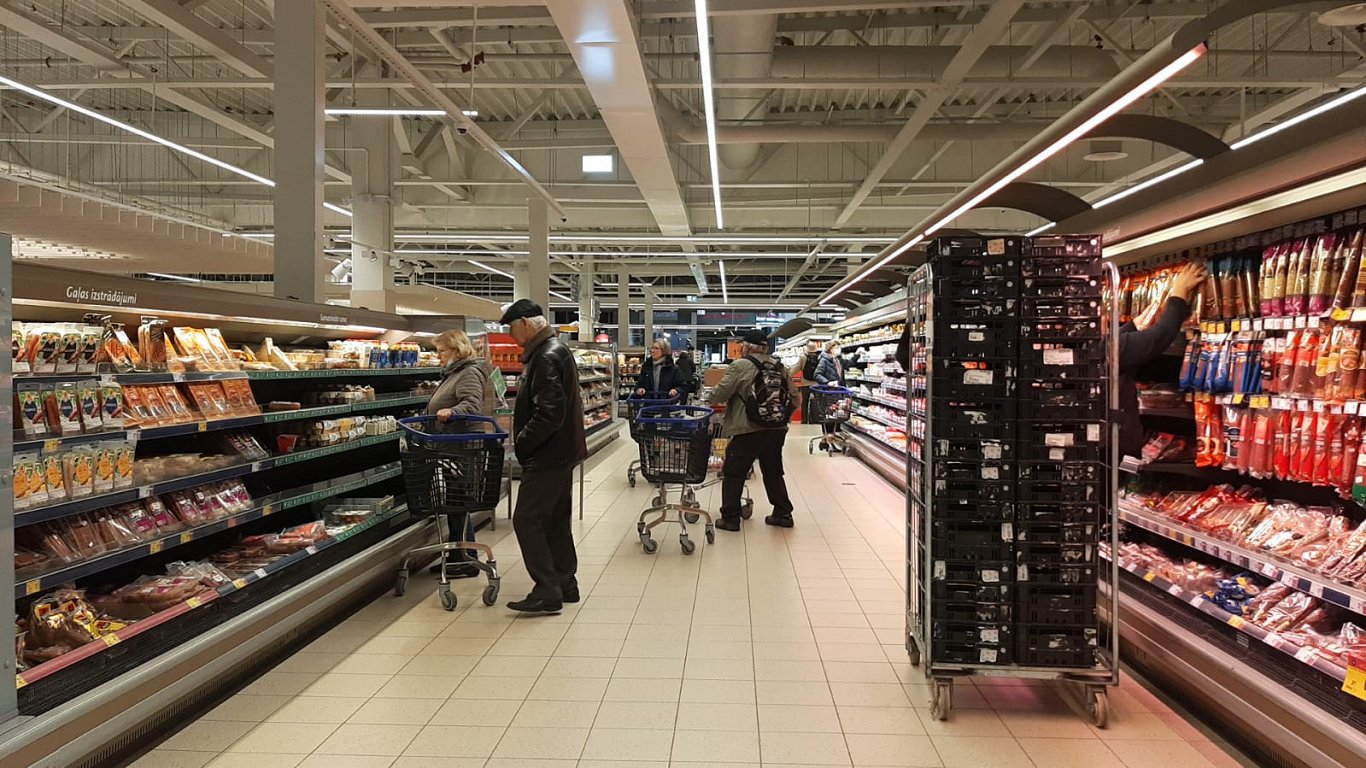This year, prices in Latvia will grow faster than income, so households' purchasing power will fall. Citadele economist Mārtiņš Āboliņš said some people have increased savings during the Covid-19 pandemic, but there are expected changes in the consumption structure.
“It means that where prices for basic needs are rising – utility bills, food – we will spend more. If we look at sectors where people might be able to reduce their spending, they are, firstly, durable consumer goods, electronics, household appliances, a computer, a phone, possibly clothing. We have also seen previous swings in the economic cycle when spending on construction was declining more sharply than overall spending. And, of course, also entertainment, tourism trips. Everything that a person can give up, everything that can't be bought today, should be postponed for a while. It also applies to some exclusive, maybe luxury goods. But of course, they are not purchased by everyone, and by people with higher incomes, usually, reserves are larger and perhaps it is not immediately necessary to review other spending,” the economist said.
The survey on population finances was conducted in March by Swedbank Financial Institute. Its expert Evija Kropa said that 66% of those surveyed looked at their financial stability with concern.
Households tend to choose two strategies: plan their finances more carefully and review existing spending.
"First of all, [the saving strategies include] visits to cafes and restaurants, this is mentioned by 56% of the population, followed immediately by trips with 43%, visits to cultural and entertainment activities by 34% of the population, while a third of the population could review their expenditure on clothing and footwear. And another 29% say they would be willing to cut their spending on items such as food and transport. These are necessary things where it is possible to save. The least frequently people are prepared to save on health care, education and housing spending,” Kropa said.
After two years spent in the Covid-19 pandemic, which hit the hotel and restaurant sector hard, the industry is now facing new challenges from rising energy resources and other prices.
Santa Graikste, executive director of the Latvian Hotel and Restaurant Association, explained that hotel bookings are being canceled due to the Ukraine war.
“Distant destinations – it would be understandable and logical [..] What is a little disturbing is that [bookings are canceled] to neighboring destinations like Germany, the Scandinavian countries. [..] Bookings are not canceled for the second half of the year, but in the short term, June, also July, but we very much hope that when the situation changes, the flow will come back and bookings will also come in. The most important thing at this point is that Latvia is positioned as a safe country where there is no war action, no threat, it is easy to reach, has hospitable personnel, absolutely safe for tourists. Then we hope that the flow of tourists will recover. Entrepreneurs work more on conferences and events, including other segments that may not have been explored before,” Graikste said.
Kropa said – the survey also shows that not all citizens are preparing to save. As inflation lowers the value of money, some are prepared to spend.
"Nearly every fourth citizen, or 23%, admits that they are currently seeking to enjoy life as much as they can without denying themselves anything, because who knows what the future will bring. But such a trend, it must be acknowledged, was basically observed in the higher income segment,” the bank spokeswoman said.
Private consumption also plays a key role in economic growth. During the pandemic, the biggest losers were the accommodation and catering industries, art, and entertainment.






























